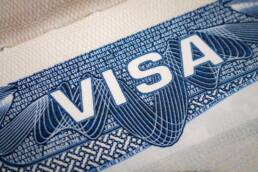A consular officer may recommend a waiver for most grounds of inadmissibility under INA § 212(a). Some grounds of inadmissibility, however, cannot be waived, including INA §§ 212(a)(3)(A)(i)(I), 212(a)(3)(A)(ii), 212(a)(3)(A)(iii), 212(a)(3)(C), 212(a)(3)(E)(i) and 212(a)(3)(E)(ii). Regardless, waivers are only available to applicants that otherwise qualify for the visa classification being sought, and, even then, there is no guarantee that a waiver will be granted. The issuing process is up to the discretion of the consular officer submitting a waiver recommendation and the CBP Admissibility Review Office (ARO) in reviewing it.
In considering whether to recommend a waiver, a consular officer will consider a variety of factors, such as:
- The recency and seriousness of the activity or condition causing inadmissibility;
- The reasons for the proposed travel to the U.S.;
- The positive or negative effect, if any, of the planned travel on U.S. public interests;
- Whether the incident in question is isolated or there is a pattern of misconduct; and
- Evidence of reformation or rehabilitation.
Generally, with the exception of C1 and D visas, a consular officer will recommend a five-year waiver. If granted, that waiver will be valid for multiple entries, but it will only be valid for the validity of the underlying visa or five years, whichever is shorter. That is because a waiver is inseparable from the visa for which it was granted, and a new waiver is required with each new visa application.
On occasion, a visa applicant may be issued a visa with a longer validity period than five years. For example, in the B-1/B-2 context, certain nationalities can be granted 10-year visas based on reciprocity. Even with a valid visa, once a waiver expires, CBP will no longer admit that person to the U.S. So, if an individual is granted a 10-year B-2 visa but their waiver is only valid for five years, that person will only be admitted to the U.S. in B-2 status during the five-year period of the underlying waiver of inadmissibility. As a solution, the Visa Office recommends that individuals with a visa validity period longer than five years, contact the issuing post to have the visa validity brought in line with the validity of the waiver.
If you believe you may need a visa waiver, please contact our office to schedule a consultation with one of our attorneys today!
Ready to have Berardi on your side?
Whether you’re a business looking to hire or a professional hoping to relocate, immigration law can be complicated. But you don’t have to do it alone. Put our experience to work for you.



